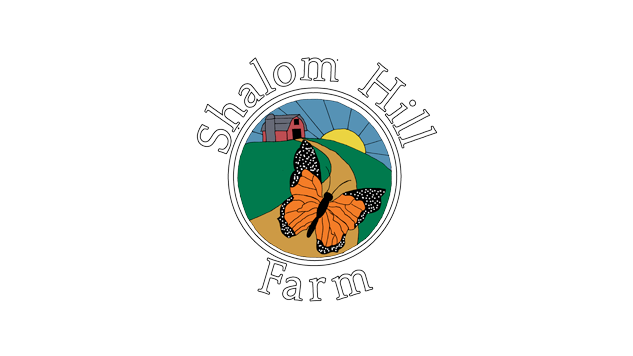Minnesota's Alt-Meat Revolution: What's for Dinner?
We're here at Tim's Food Pride and it's a local grocery store in Dawson. I was curious to see about what types of plant-based foods that they have here. So, we're gonna go back to the dairy section, to check it out. As we've learned over the course of this series, the residents of Dawson recently welcomed a new neighbor. PURIS, the largest processor of yellow pea protein in the country. So, I wanted to see if their presence in town was driving local people to eat more plant-based proteins. So, I see here we have vegan veggie burger. Veggie burger, Morningstar. These are Bocas. So, it looks like those are our options for plant-based protein. How have you noticed what people are buying or what people are coming to the grocery store, and what they're eating? How have you noticed, if at all, that change?
Well, I noticed that the ladies that come and shop and have families and young children are buying a lot of produce and not so much as meat.
How have you noticed, if at all, PURIS' influence on what people are eating in this area?
To be honest, I really haven't noticed. I know we have vegans and people that are very conscious about what they eat around here.
Yeah.
But not to where I personally see it. I just hear about it or talk to 'em about it.
A little bit, I have. I have some friends that are vegans. That are really happy to have the plant here.
[Amanda] Oh really?
[Colleen] Yes.
[Amanda] You've noticed more of the plant-based burgers being available?
Yes.
Do you think people are eating 'em though?
You know, I don't know.
This. This is what we're here to figure out. What actually is for dinner in rural Minnesota? Are plant-based products really taking root here? Healthy eating is in right now all over the country. And for some that means less meat, less carbs, and more plants. Many decades of innovation in the plant-based protein world has gotten these companies to the mainstream. Like Jay-Z, Katy Perry, Drake, million dollar investments mainstream. Walking through Tim's Food Pride, people know PURIS. People know people who are plant-based eaters around town.
Food is so deeply rooted in who we are. It's rooted in our memories, in our culture, in our traditions, in our family, in our lifestyle. So, when we make changes to food, it can feel very personal.
[Amanda] Amber Boyens a local nutritionist, and has helped many people in this area navigate dietary change.
-When we talk about a rural area, a lot of times meat and potatoes, kind of those hardy meals that are gonna get you through a longer day in the field. Those things feel like they're gonna sustain you. A bowl of plant-based food intuitively to people sometimes, feels like it's not going to sustain you. Even if it could. When we think about an average plate, half of our plates at least, should be coming from plant-based foods. If not, three-quarters of our plate.
[Amanda] Amber helped me understand that our eating habits are developed early on, which is why diet change is hard. It's changing generations of dietary influence.
What do you guys think about trying a hot dog or a hamburger or chicken nuggets that are made from beans or peas?
[Child] My dad ate crocodile before, just a little piece.
Plant-based foods in general are so full of flavor, but they're intimidating.
I mean, I find eating crocodile a little more intimidating than eating plants. But people change their diets for a number of reasons. Health, budget, ethics, the environment, enjoyment. Kelli Fernholz is the teacher of this preschool class in Madison, a town next to Dawson, that Amber occasionally comes to talk to. She's a client of Amber's working on diet change. She has three kids who are involved in all of the activities as kids are these days.
We live in this like crazy busy schedule world of running to baseball games and my daughter's in gymnastics and we're just driving all the time and never home. And I think we had gone like a couple weeks where we were eating out or at a gas station or something. And that just is not how I like to feed my family.
[Amanda] So what does plant-based eating, what does that mean to you?
Less meat.
[Amanda] Yeah. Like vegetables is at the center of your-
Less animal products, yeah. More fruits and vegetables.
I ask what plant-based means to people, because these terms, plant-based and plant-based proteins, are very marketable now and are starting to mean everything and nothing at the same time. And even though Kelly is a meat eater, eating more plants was something that she was doing already.
Like fruits and vegetables have always come naturally, but the plant-based protein is the harder part. The first thought is to have a steak or a chicken breast.
Traditionally, plant-based has meant foods like vegetables, beans and tofu. But now companies in this plant-based space like PURIS, are hoping that the term makes consumers think of things like pea protein sausages, and soy protein chicken, something that people with busy lifestyles like Kelli can just throw in the microwave.
I just would rather just go with like a real food. Like I'm just going to eat the salad, real food.
[Amanda] And depending on an individual's dietary needs, meat alternatives aren't always healthier. Like, salt much? These plant-based meat alternatives are more about adding variety.
So if we're gonna introduce a plant-based burger, it's still a burger. And maybe you don't change any other element to the meal, but you change what that burger is made of.
[Amanda] Or you change what the cookie is made of.
Who has heard of a chickpea before? Have you eaten chickpeas, do you like them? Yes!
[Kelli] You had 'em in your lunch yesterday.
You did? Chickpeas are what we're going to use today to make our dip. So we're gonna make chickpeas taste like cookies. What do you think about that?
They added vanilla, salt, peanut butter, soy milk, maple syrup, chickpeas and chocolate chips. That sounds pretty good.
Let's go around, and I want all of you to be good listeners and to tell me, what was your favorite thing that we tried today? Oh, and let's start with you, 'cause I know you love to share.
Yes.
You like the dip? Yeah? Ella, what was your favorite?
The dip!
The dip?
The dip.
I don't like chickpeas.
You don't like chickpeas, but you like the dip, right? And what's the dip made from?
Chickpeas.
Chickpeas! So sometimes if we don't like a certain food, we might like it if we make it a different way, right?
Just like the kids, people in the Twin Cities, like moi, have the opportunity to try new plant-based eats at the Twin Cities Veg Fest.
[Unny] I've never heard of this place before.
Oh, this is PURIS.
[Unny] This is PURIS? Oh, that's great!
[Amanda] Unny Nambudiripad co-founded the fest.
Nutritionist Amber Boyens shares a recipe for an alternative cookie dough made from chickpeas with a classroom of kids, highlighting that food can made with a variety of options available. This clip is from the fourth episode of “Minnesota's Alt-Meat Revolution”! Don't miss out, watch now at pioneer.org/altmeat. #MeatlessInMN #chickpeacookiedough #tryingsomethingnew
I've been doing this for 25 years, and in retrospect, the first 10 or 15 years seems really hard, when I see what's happening right now. And the rise in popularity, and we've really been able to tap into the excitement and interest in plant-based foods.
[Amanda] And Unny has a whole different take on eating traditions. His parents were both vegetarians when they immigrated from India to Canada, eventually moving to the U.S., before Unny was born. And like many Americans, they started eating meat except for Unny's mom. So it wasn't like your mom felt betrayed or there was someone that was like, "These are our traditions, we eat this way. We gather and we eat these certain types of foods." It was less that, it was just eat whatever-
No, in fact, I can't remember her ever saying anything critical of of us eating meat. And nor did my dad, or any of us saying anything critical about my mom being a vegetarian.
[Amanda] Unny grew up in Minnesota, but after a trip to India, his family's strong ties to vegetarianism, eventually pulled him back into the lifestyle.
Some of the foods that my mom made are the foods I crave the most. But you know, I grew up here and I ate a lot of different American kind of foods. And you know American, that can mean a lot of different things. This is the great thing about being a second generation immigrant. I'm not attached to, I could eat all Indian food, and every day for the rest of my life, and be happy or not eat it at all, and be totally fine.
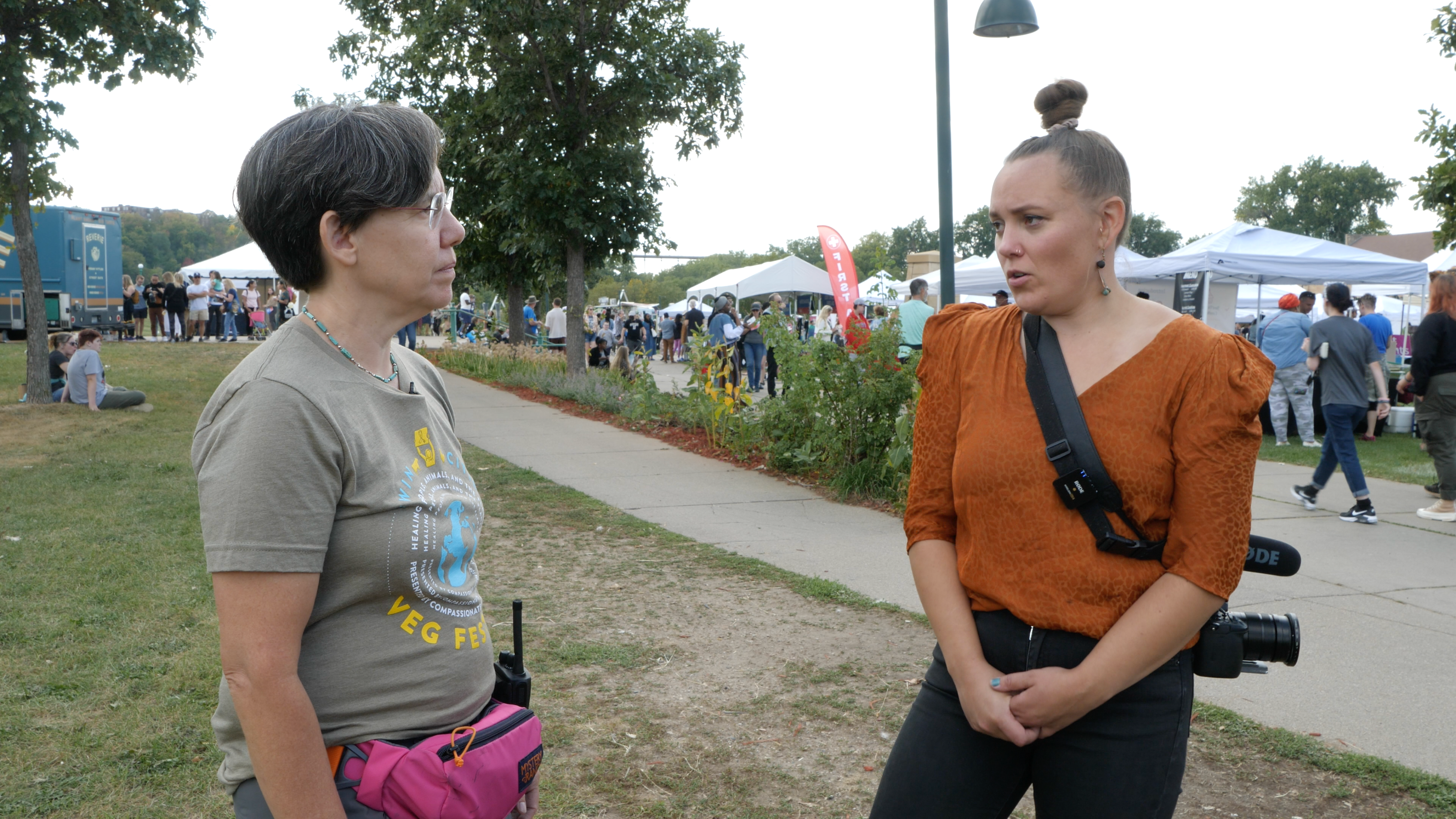
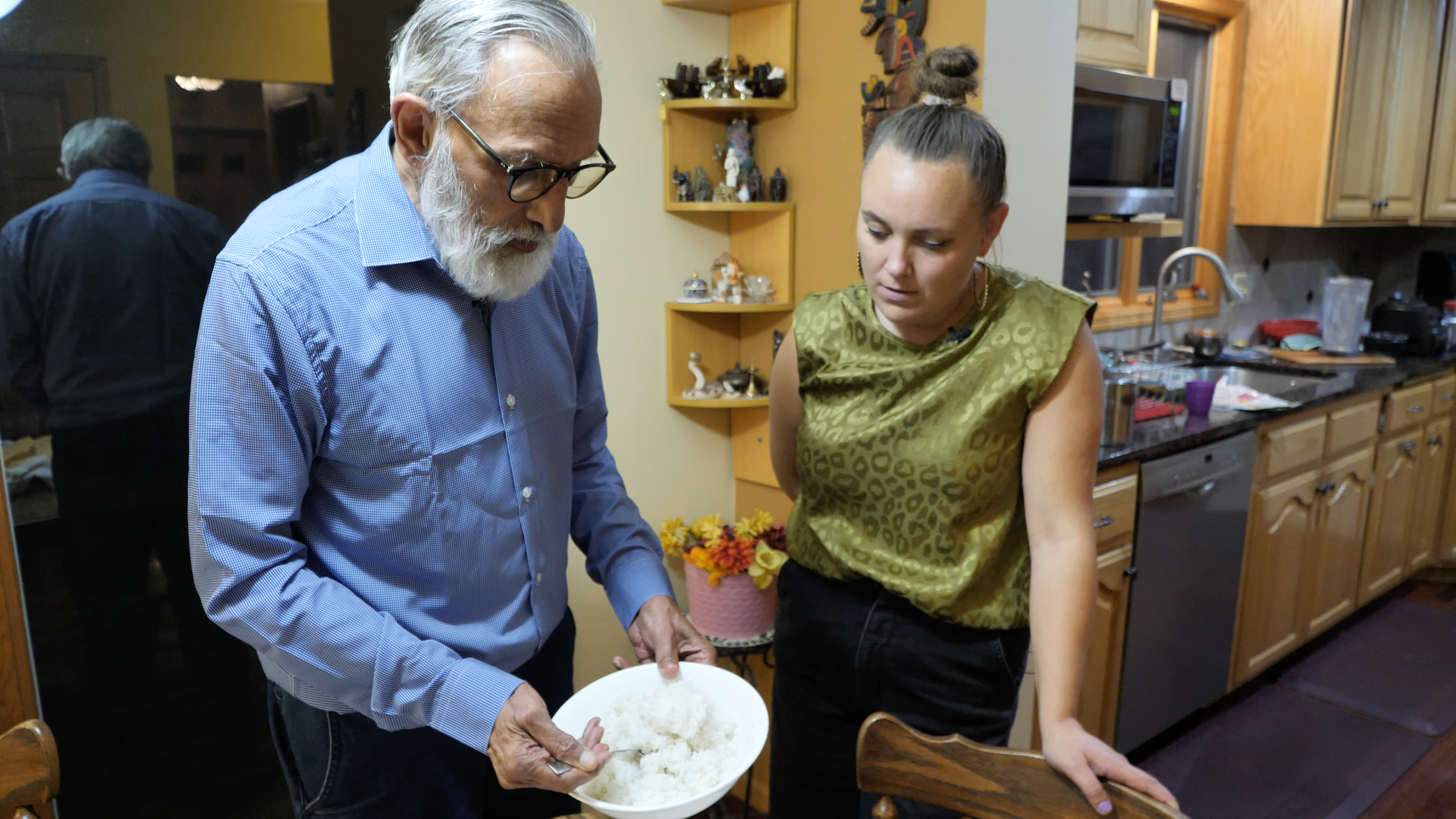
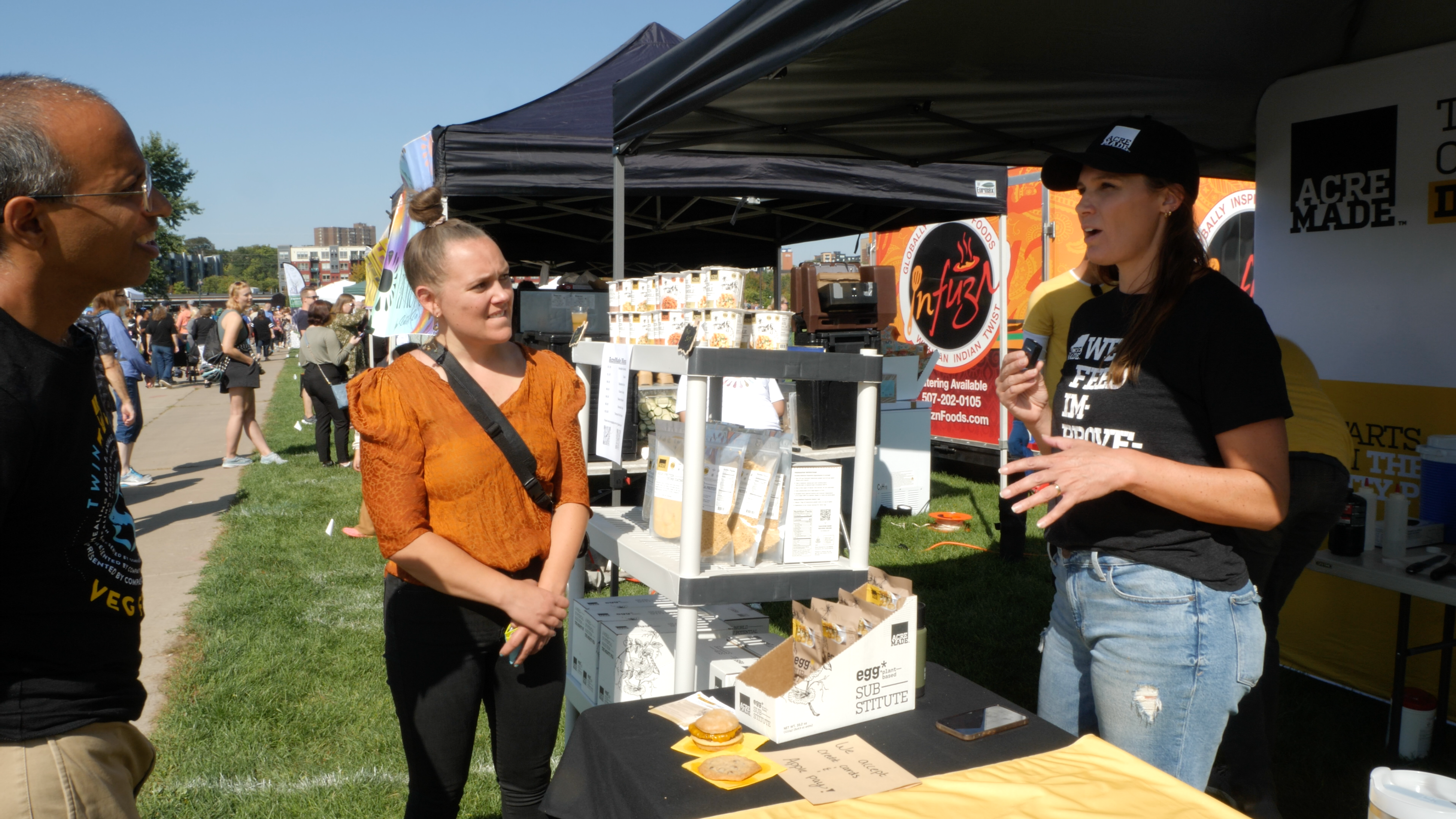
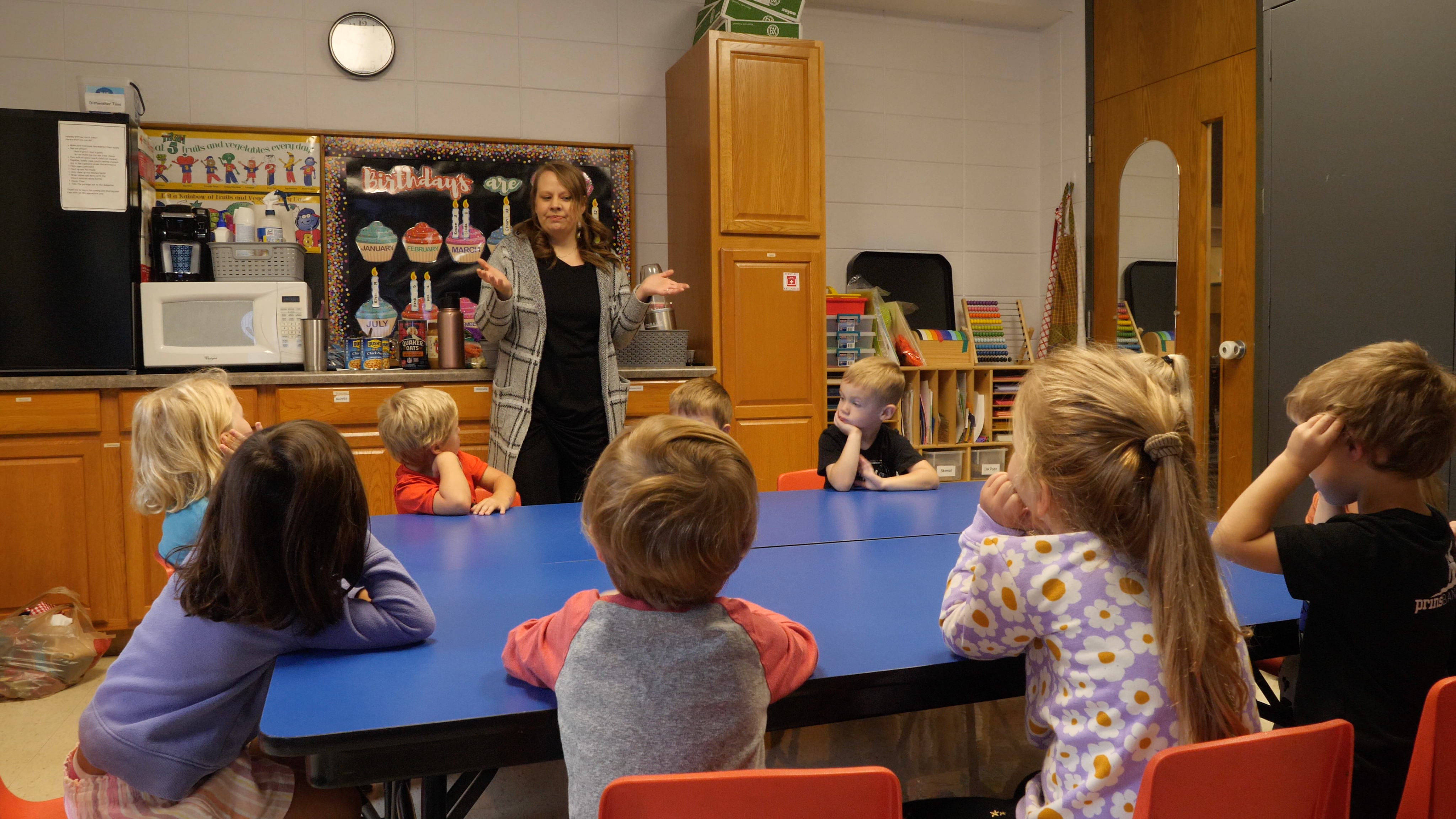
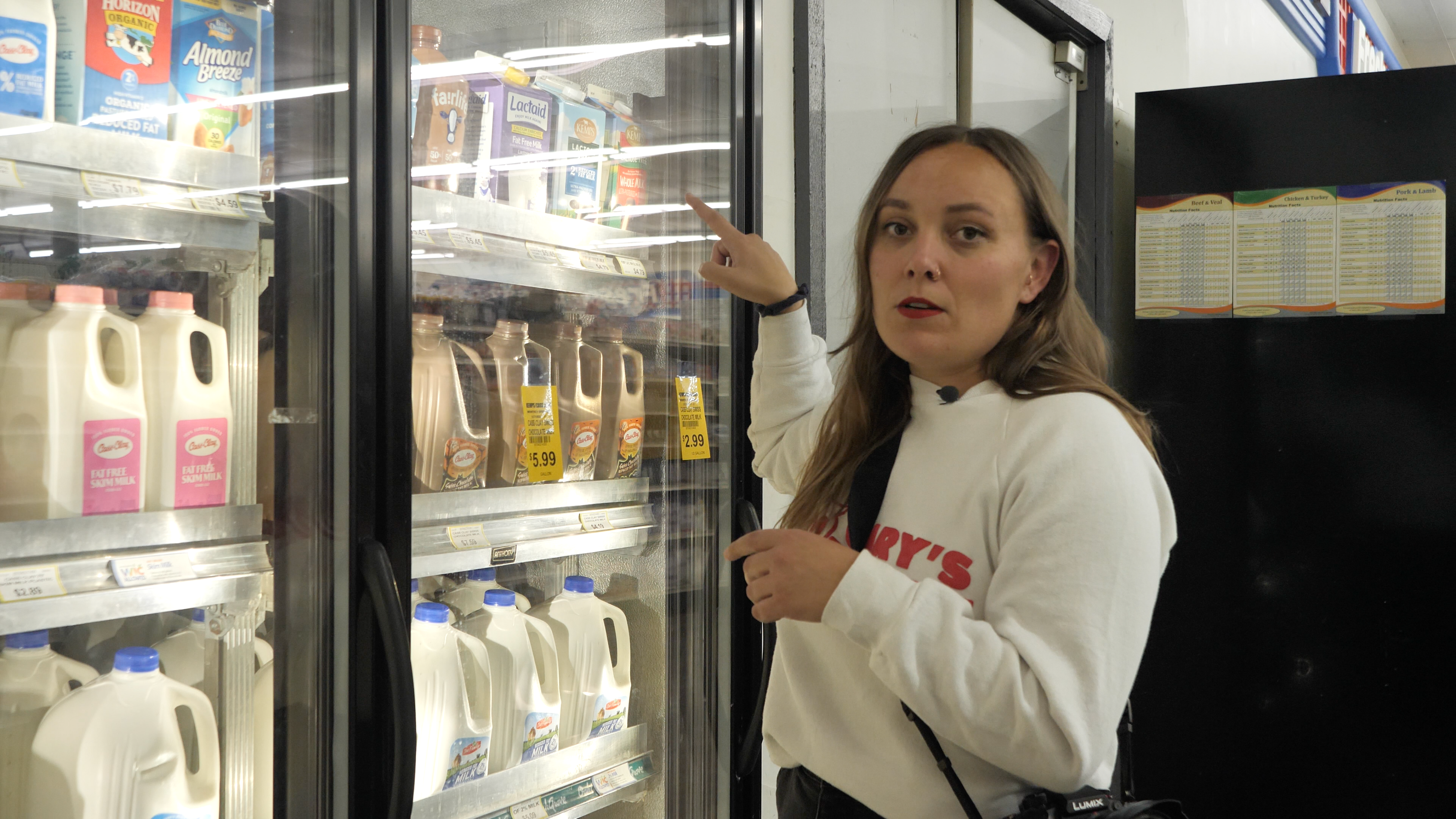
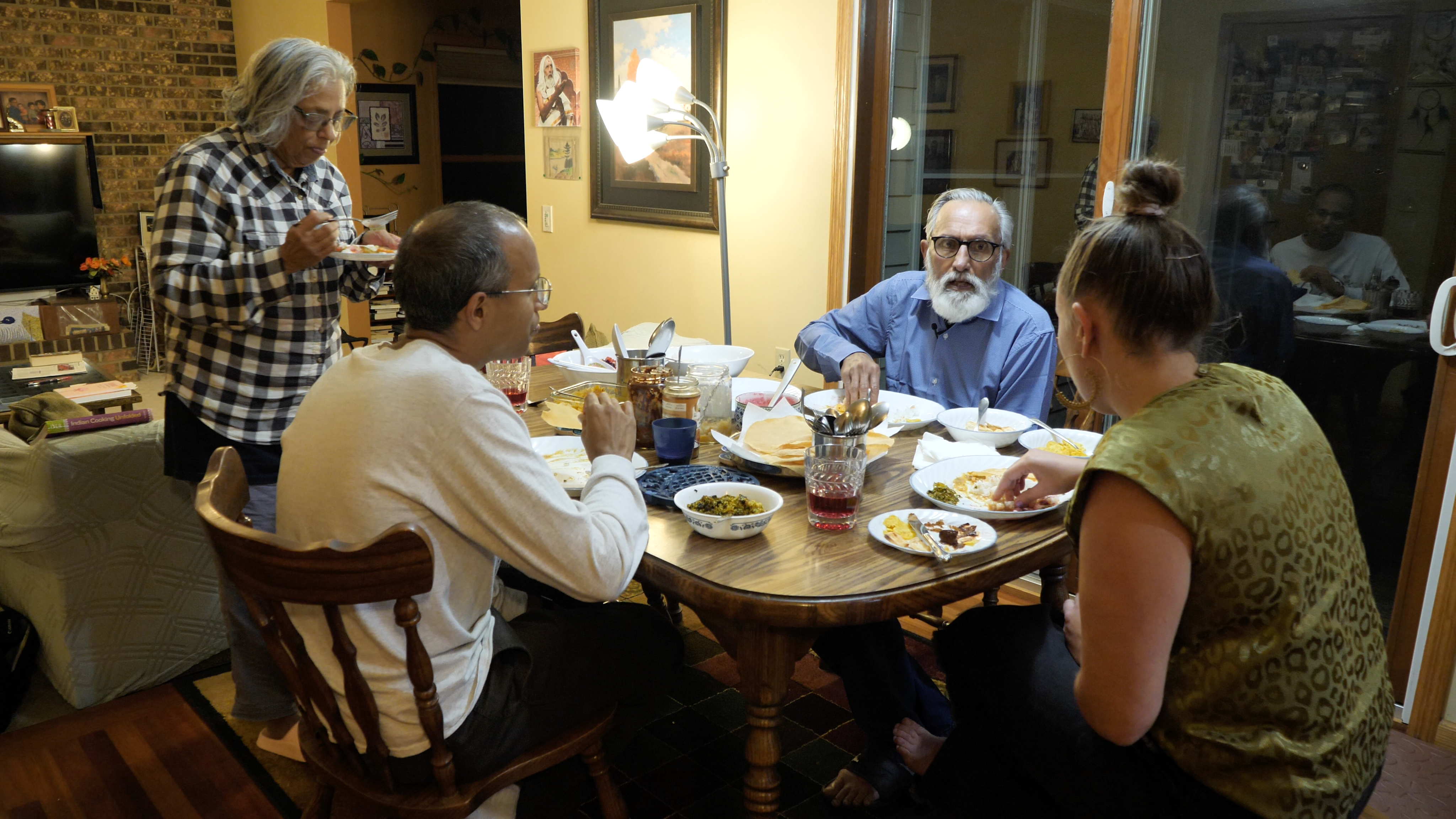

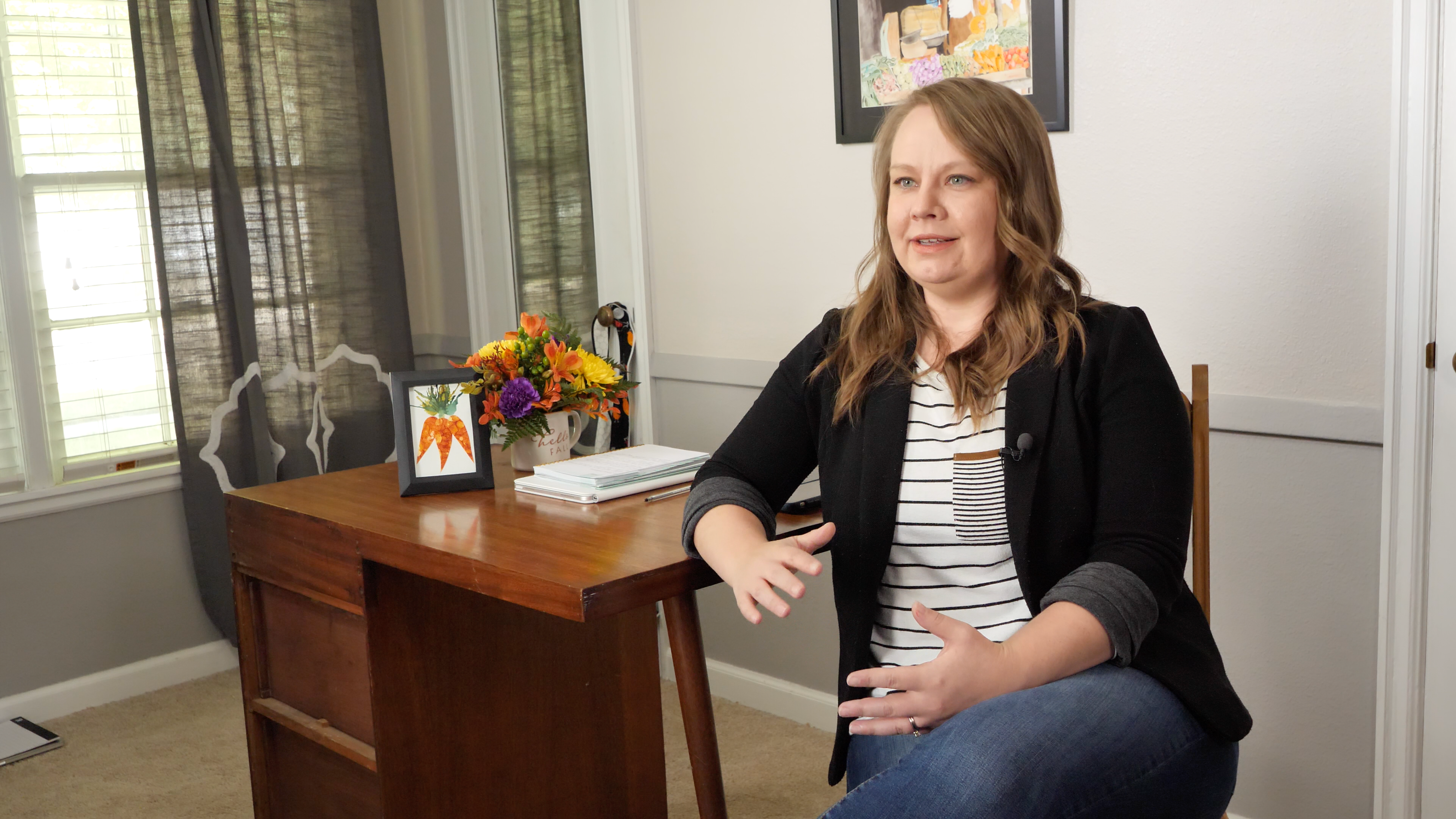
[Amanda] Oh my gosh. Hi, how are you?
How are you?
[Amanda] Oh my gosh, nice to meet you, I'm Amanda.
Come on in.
[Amanda] Thank you. Unny's parents, Godan and Savithri, have lived in Burnsville for 42 years. They grew up eating traditional dishes from Kerala, a state in southern India, and that's what was for dinner.
Here's the main dish that in South India, especially Kerala, we use a lot of rice. That's the main dish, and the main accompaniment we use, Sambar. This Sambar is made out of lentils and vegetables, and tamarind.
[Amanda] We also had a vibrantly colored, pink beet root and mustard curry, a mixture of dried kale and broccoli, and a variety of pickled fruits and vegetables. And how would you say your eating habits, if they did at all change when you moved to Canada or the United States?
There are two things changed, One, morning we ate mostly cereal, for breakfast. Lunch, usually, sandwich or something that we pack, and the evening will be the big meal.
Well, and I think that, yeah, I mean it's kind of implied, but what he just said there is that it's evening time was the only time we were eating Indian kind of food.
Yeah. People around the world cherish the foods they grew up with, but with busy schedules, is there time to make home-cooked meals every day? Even more, sit down and eat together? When busy lifestyles require constant productivity, the social mealtime is one of the first things to go. And our culture has started to reflect that. Grab-and-go breakfast, fast food restaurants, drive-thrus, convenience store sushi. We can see the impact that unhealthy diets can have on our bodies and our planet. So what do we prioritize? It's not clear if plant-based burgers are a solution, or perpetuating busy lifestyle eating habits. Part of the appeal of meat substitutes is that they're similar to what's familiar. Plant-based burgers cook up like meat burgers, fast and conveniently, but they don't really bring us together, do they? On the next episode of "Minnesota's Alt-Meat Revolution," we'll explore what it means for Dawson's economy when a large pea protein processing plant, moves in down the street.



